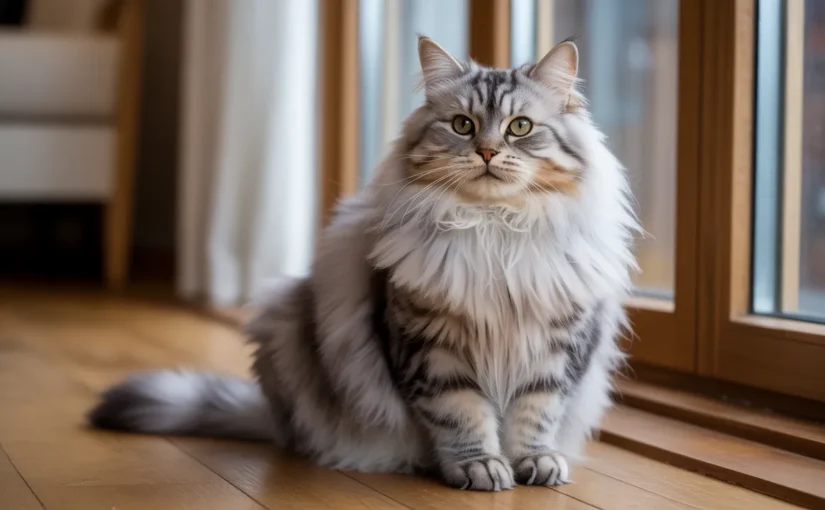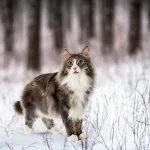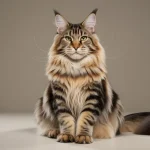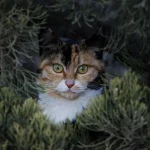If you’re looking for a beautiful, affectionate, and intelligent feline companion, the Siberian Forest Cat might just be the perfect fit. Known for its striking appearance and playful personality, this ancient Russian breed has been winning hearts worldwide. Whether you’re a first-time cat owner or an experienced cat lover, understanding the Siberian cat temperament, grooming needs, and health considerations is crucial to providing a happy, healthy home for this remarkable breed.
In this guide, we’ll cover everything you need to know about Siberian Forest Cats, including their personality traits, care tips, grooming, health, and lifespan. We’ll also share a real-life case study of a Siberian Forest Cat family to give you practical insights.
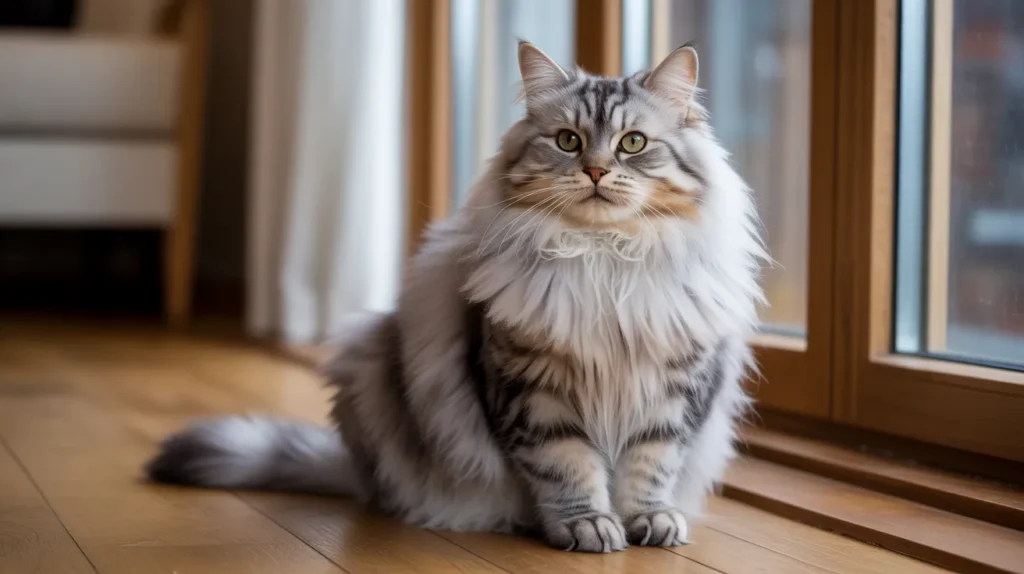
Content
Siberian Forest Cat Overview
The Siberian Forest Cat is a medium-to-large cat breed originating from the forests of Russia. This breed is famous for its dense triple-layered coat, which protects it from harsh climates, and its expressive eyes, often green, gold, or copper.
Key Facts:
- Life Expectancy: 12–15 years
- Size: 8–17 pounds (females), 12–20 pounds (males)
- Coat: Semi-long, water-resistant, plush
- Temperament: Playful, affectionate, intelligent
Siberian Forest Cats are known for their agility and curiosity. They enjoy exploring their surroundings, climbing, and engaging in interactive play. Despite their size, they are gentle and well-mannered, making them excellent companions for families and single owners alike.
Personality of Siberian Forest Cats
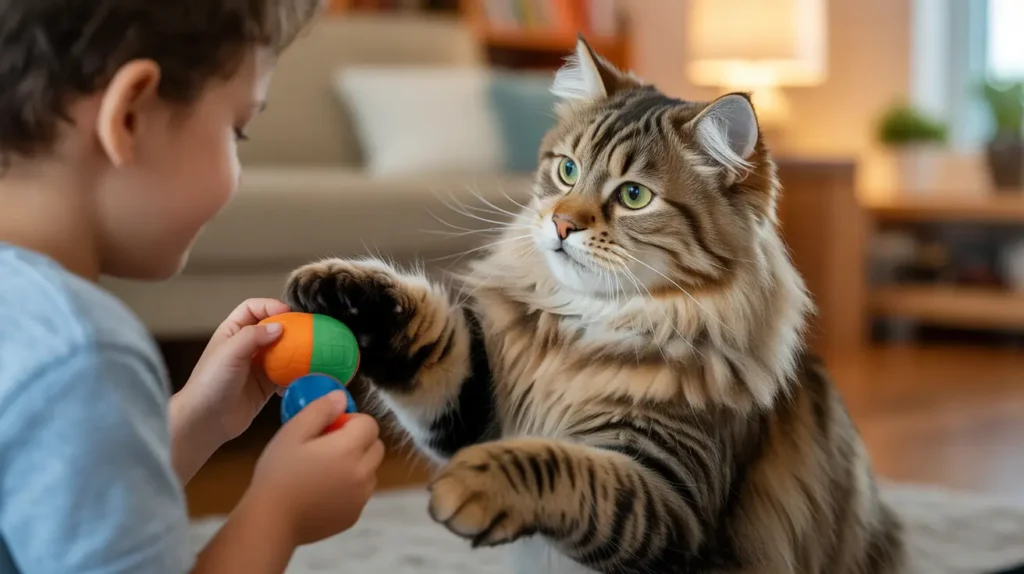
One of the most captivating aspects of the Siberian Forest Cat personality is its balance of independence and affection. These cats are highly social and bond closely with their human families, yet they also enjoy quiet moments alone.
Key personality traits include:
- Affectionate: They often greet owners at the door and love to curl up on laps.
- Playful and Intelligent: Siberians enjoy puzzle toys, fetch games, and learning tricks.
- Adaptable: They adjust well to different household environments and can thrive in homes with dogs or other cats.
- Curious and Adventurous: A safe, enriched environment with climbing spaces will keep them happy.
Unlike some breeds that are shy or standoffish, Siberian Forest Cats are confident and friendly, making them excellent pets for children. They are also known for their soft, melodic meows that communicate their moods effectively.
How to Care for a Siberian Forest Cat
Caring for a Siberian Forest requires understanding their daily needs. Proper care includes feeding, exercise, mental stimulation, and regular vet visits.
Diet and Nutrition
Feeding a Siberian Forest high-quality protein-rich food is essential to maintain their muscular build and energy levels. Avoid fillers or artificial additives, as Siberians are prone to sensitive digestion. A combination of wet and dry food ensures hydration and dental health.
Exercise and Play
These cats are highly active. Regular play sessions with interactive toys, climbing trees, or puzzle feeders help prevent boredom and keep them physically fit. A tired Siberian is a happy, well-behaved cat!
Grooming Tips
Siberian cat grooming is essential, especially during seasonal shedding. Their thick triple coat requires brushing at least 2–3 times per week to prevent mats and tangles. Bathing is rarely needed but occasional wipes with a damp cloth can help remove dust and loose fur. Grooming is also an excellent bonding opportunity.
Social and Emotional Care
Siberians thrive on interaction. Daily attention, gentle petting, and playtime strengthen their bond with humans. While they enjoy companionship, giving them personal space when needed is equally important.
Read More About: Smartest Cat Breed
Health and Lifespan
Siberian Forest Cats are generally healthy, but like all breeds, they have specific health considerations.
Common health concerns:
- Hypertrophic cardiomyopathy (heart disease) – regular vet check-ups recommended.
- Polycystic kidney disease – genetic testing advised.
- Allergies – interestingly, Siberians are often considered hypoallergenic due to lower levels of the Fel d 1 protein.
Average Lifespan: 12–15 years, with some living into their late teens with proper care and nutrition.
Regular veterinary visits, a balanced diet, and mental stimulation are key factors in extending a Siberian’s lifespan and ensuring a happy, healthy life.
Real-Life Case Study: Meet Luna, the Siberian Forest Cat
Luna, a 5-year-old Siberian Forest Cat, lives with a family of four in Boston. When Luna joined the family, her parents were first-time cat owners and wanted a friendly, adaptable pet.
Observations:
- Luna immediately bonded with the children, following them around the house and joining in playtime.
- She loved climbing her cat tree and playing with puzzle feeders, demonstrating her intelligence and curiosity.
- Her parents noticed minimal shedding due to regular grooming sessions twice a week, which became a family activity.
- Luna’s gentle temperament made her a perfect companion for the family dog, showing that Siberians often integrate well with other pets.
This case study highlights the breed’s affectionate nature, adaptability, and ease of care when owners are proactive with grooming and enrichment.
Grooming Tips
While Siberian cats are relatively low-maintenance compared to some long-haired breeds, consistent grooming keeps their coat healthy and reduces shedding.
Tips:
- Brush 2–3 times per week to prevent tangles.
- Pay attention to undercoat during shedding seasons.
- Use soft brushes or combs to avoid irritating their skin.
- Check and clean ears regularly to prevent infections.
Grooming is not only about hygiene but also strengthens the bond between you and your cat, helping them feel loved and secure.
Is a Siberian Forest Cat Right for You?
Deciding to adopt a Siberian Forest depends on your lifestyle and expectations:
- Do you have time for daily play and interaction?
- Can you commit to regular grooming?
- Are you prepared for a long-term companion, potentially 15+ years?
If you answered yes, a Siberian Forest Cat can be an incredibly rewarding addition to your family. Their affectionate, playful, and intelligent nature ensures you’ll never have a dull moment.
Conclusion
The Siberian Forest Cat is an affectionate, playful, and intelligent breed that makes a fantastic companion for families, singles, or experienced cat owners. With proper care, grooming, and attention to health, these majestic cats can thrive and become cherished members of your household.
Whether you’re captivated by their soft, luxurious coat or their loving personality, the Siberian Forest Cat offers a unique combination of beauty, brains, and heart. Consider your lifestyle, spend time bonding, and you’ll discover firsthand why this breed is truly one-of-a-kind.
If you love unique coat patterns, you’ll also enjoy learning about the Calico and Tabby Mix, a cat breed known for its vibrant colors and charming personality.
FAQs
How much does a Siberian Forest Cat cost?
It typically cost between $800–$2,500 depending on pedigree, breeder, and location.
Maine Coon vs Siberian Forest Cat – what’s the difference?
Maine Coons are larger, with a longer face and coarser coat. Siberians are more agile, with a dense triple coat and slightly smaller frame.
Norwegian Forest Cat vs Siberian Forest Cat – how do they differ?
They have a triangular face and straighter profile. Siberians have a rounded head, expressive eyes, and slightly more playful temperament.
Are Siberian Forest Cats hypoallergenic?
Yes, they are often considered hypoallergenic due to lower Fel d 1 protein levels, making them suitable for mild allergy sufferers.

Meet Max, the dog’s best friend. He’s a pup-loving pro, sharing tips on training, grooming, and adventures with our four-legged companions.
